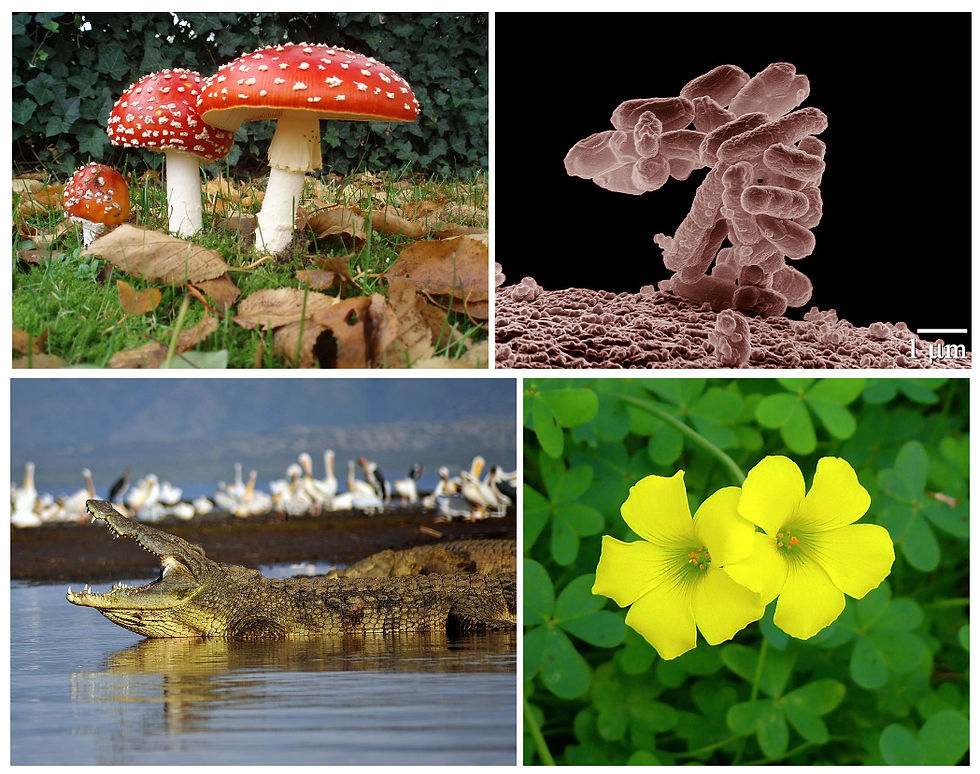The difference between science and knowledge
- aldaghry
- Jan 16
- 4 min read
Updated: Feb 2
Written by: Arej Ghanem

The concepts of science and knowledge are confused for many people, and you may even think that they are two synonymous words that give the same meaning. The truth is that the difference between them lies in the fact that science often refers to a specific branch of knowledge, such as physics, biology, chemistry, and other similar sciences. However, the concept of knowledge is more comprehensive, as it means the sea of all knowledge that sciences cover. A person may acquire knowledge about many fields or topics, but science means choosing a specialization in itself and expanding its study. Science also deals with scientific principles that can be measured or are subject to basic natural laws or methodological standards. In short, knowledge is absolute and limitless, while science is specific and specific.
Science
Science is based primarily on observation and experiments with the aim of studying the physical and natural world. Everything that exists in the space around us is a science in itself that requires research, observation and study. The water we drink, which is composed of hydrogen and oxygen atoms, is a science, the clothes we wear, which are made of different fabrics, are a science, and the air we breathe, with its various gaseous components, is also a science. Science is defined in terminology as any cognitive system that is concerned with the physical world and its phenomena with the aim of reaching systematic experimental observations in an objective and completely unbiased manner. Science aims to obtain useful results on all levels, in order to facilitate human life and provide him with the ideal conditions that ensure his best living, within a balanced combination of the basic elements on the surface of the planet.

The following are the most prominent types of science:
Natural sciences: which include biology, space sciences, physics, and others.
Social sciences: which include the study of society and humans (anthropology), psychology and the like.
Formal sciences: include the sciences of logic, the most important of which is mathematics.
Applied sciences: which rely on science to develop new applications such as engineering, medicine, and artificial intelligence.
Knowledge
Samuel Johnson mentioned knowledge and its meaning in the dictionary of meanings and definitions that knowledge is of two types: the first is to reach the information yourself, and the second is the place to search for the information you want and reach it in the end, and in philosophy there is a theory known as (the theory of knowledge) that revolves around what you will obtain from knowledge through your experiences and life experiences or through the ability to think instinctively, and it also indicates the possibility of changing knowledge with the emergence of new ideas about a specific set of facts.
A person acquires and obtains knowledge through several methods, the most prominent of which are: Instinct, reason and intuition, and the amount of knowledge that a person acquires varies according to age, cultural background and level of education. For example, a person acquires a lot of personal knowledge just by being around his parents, and the amount of what he will learn will double if their knowledge balance is good. Also, being in an educational environment means gaining a greater amount of knowledge compared to a person who has not received much education, without neglecting the role of the cultural background, which depends on the individual himself and his desire to learn languages, read books, experience new experiences and adventures, and be present in gatherings to gain as much experience as possible.

Knowledge is divided into four main types:
Real knowledge: which means specific terms, details and basic elements in each field of science, and its strength and quality depend on memory and the ability to store facts and retrieve them when needed.
Conceptual knowledge: which means knowledge of the interrelationships of principles, models and theories, and facts are organized through them to reach a specific goal or meaning.
Procedural knowledge: It means familiarity with the skills, techniques and methods of a specific subject in order to achieve it, as the body, senses and mind are used to acquire information.
Metacognitive knowledge: It is a type of strategy that some people find uncomfortable, because it is related to acquiring knowledge that may be vague and not directly clear, but rather requires trust in intuition.
Scientific knowledge and its characteristics There are a set of characteristics that must be present in knowledge in order for us to be able to call it practical, and the most prominent of these characteristics are as follows:

Objectivity: It means the ability to accept facts as they are in a neutral manner without falsification or change, as the scientist must be careful of his desires, biases and preferences, eliminating all subjective considerations and prejudices.
Verifiability: Science relies on information that can be obtained through the senses in a tangible way; such as smell, sight, speech and touch, and the scientist can weigh phenomena and verify their accuracy to the fullest extent.
Ethical neutrality: The scientist's sole goal should be knowledge while preserving his original values. For example, scientists should not design bombs to wage wars and harm humanity.
Systematic exploration: Scientific research adopts a specific sequential procedure or an organized plan to collect, analyze, code and classify facts, by following a set of basic steps.
Reliability: This means that the scientific results reached are reliable because they are based on accurate conclusions and are honest according to the different circumstances at any time and place.
Accuracy: Scientific writings are not literary writings like novels and stories, and do not depend on imagination and innovation, but on facts, evidence and accurate statistics, not randomness.
Specificity: The scientist is not satisfied with the general, unspecified image of the conclusions he reaches, but rather describes things by their correct names without jumping to unjustified conclusions.
Abstraction: The principle of science is originally an abstract principle, and is not concerned with the realistic image as much as it is concerned with its truth.
The ability to predict: Scientists do not just describe and study phenomena, but they also try to predict what will happen next based on a systematic scientific sequence supported by evidence.



Comments